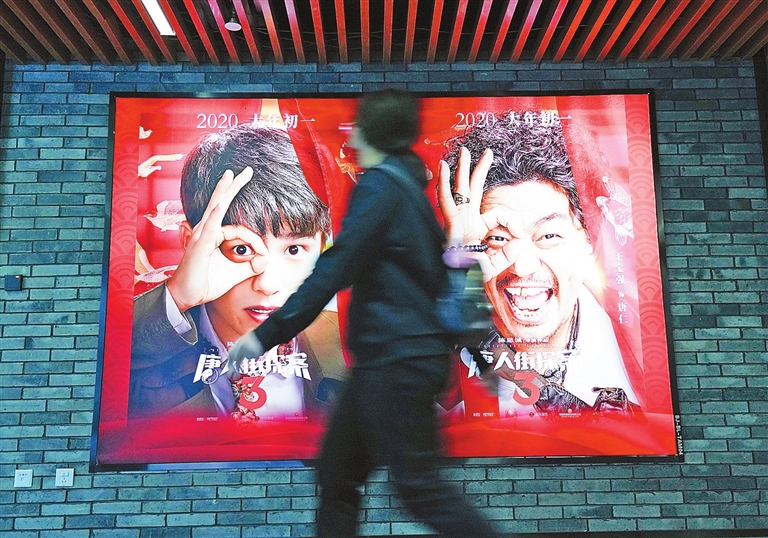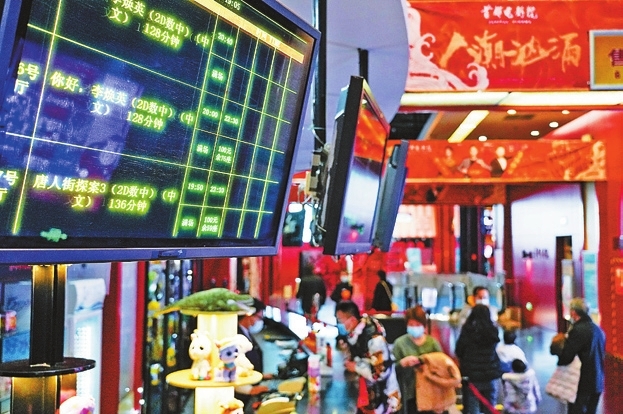

WITH China’s box office takings expected to return to near pre-pandemic highs in 2021, the world’s largest movie market is becoming more attractive — and more tricky — for Hollywood studios. Ticket sales from cinemas in China, which has largely contained the coronavirus, may jump to 60 billion yuan (US$9 billion) this year, according to Rance Pow, founder of consultancy Artisan Gateway, closing in on 2019’s record haul of 64 billion yuan. By contrast, with outbreaks still raging, U.S. cinemas may take in about a third of that tally, Wedbush Securities estimates, underscoring Hollywood studios’ growing dependence on China. China overtook the U.S. to become the top movie market last year, as the pandemic shut American cinemas for longer than their Chinese peers. But the increasing reliance comes as Chinese viewers pivot to local language films. “China’s market is now central to any major release,” said Aynne Kokas, a professor of media studies at the University of Virginia. “Diminishing market share presents a worrying picture for Hollywood studios” that may have been relying on China to recoup blockbusters’ budgets, she said. The share of foreign films, including those from Hollywood, slipped to 16 percent of Chinese ticket receipts in 2020 from 36 percent the year before, according to ticketing platform Maoyan Entertainment. Fewer foreign films were released in China last year as studios’ plans went awry amid the pandemic. The legal framework for Hollywood studios to get their films into China has also become less certain. An agreement with the U.S. that saw China import at least 34 films a year expired in 2017 and has not been renewed or renegotiated. “The expiration of the U.S.-China film agreement presents a serious challenge to Hollywood studios,” Kokas said. It was unclear when the new U.S. administration would renegotiate this pact, given “the competing priorities they face in the relationship with China.” With new COVID-19 cases down to a handful a day, Chinese film-goers are flocking back to cinemas. While Jan. 1 saw the highest New Year box office collection in China, the Lunar New Year on Feb. 12 recorded the highest one-day taking. Ticket sales for the first four days of the Lunar New Year holiday surpassed 2019 levels to touch 4.5 billion yuan, according to Maoyan, with Chinese films emerging as the top contributors. The most anticipated films this Lunar New Year season include mystery comedy “Detective Chinatown 3” and family comedy “Hi, Mom,” both Chinese-language titles made by local studios. Warner Bros Entertainment Inc.’s live-action remake of the cartoon classic “Tom and Jerry” is the only big Hollywood film confirmed to release Feb. 26, when it opens in the U.S. too. Chinese studios produced four of the 10 top-grossing films globally last year, including the top scorer, “The Eight Hundred,” according to industry data tracker Box Office Mojo. Meanwhile, several of Hollywood’s highly anticipated, big-budget films either flopped in China or faced public-relations issues. Walt Disney Co.’s fantasy-action drama “Mulan” stirred up controversy for its portrayal of Chinese culture. “Monster Hunter,” directed by Paul W.S. Anderson and backed by Sony Corp., was pulled from some cinemas in China after a social media backlash over a dialogue that, according to some viewers, was similar to a playground taunt against people of Asian descent. The movie’s co-producer apologized and edited out that line. With Chinese studios now making high-quality and culturally relevant films, the days of China’s market saving a mediocre movie were over, according to Chris Fenton, an American film producer and trustee of the U.S.-Asia Institute. (SD-Agencies) | 
